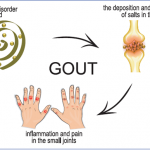NEW YORK (Reuters Health)—A new position paper from the American College of Physicians (ACP) aims to reduce administrative tasks in health care.
Reducing these tasks has been an important long-term objective of ACP, which developed the Patients before Paperwork initiative in 2015 as part of this effort.
In a publication online on March 27 in Annals of Internal Medicine, the ACP’s Medical Practice and Quality Committee presents what it calls “a cohesive framework for analyzing administrative tasks through several lenses to better understand any given task that a clinician and his or her staff may be required to perform.”1
The goal, the Committee says, “is to address the administrative burdens that prevent physicians from putting their patients first.”
The recommendations call on stakeholders external to the physician practice to challenge, revise or remove entirely tasks that have a negative effect on quality and patient care, unnecessarily question physician and other clinician judgment, or increase costs.
Administrative tasks that can’t be eliminated should be reviewed, revised, aligned and/or streamlined regularly with the goal of minimizing burden.
All stakeholders should collaborate to aim for performance measures that minimize unnecessary clinician burden, maximize patient and family centeredness, and integrate the measurement of and reporting on performance with quality improvement and care delivery. Better use of existing health information technologies and development of additional innovative approaches should be part of this effort.
Recommendation 5 (review and consider streamlining or eliminating duplicative administrative requirements) “is critically important,” coauthor Shari M. Erickson, vice president of Governmental Affairs and Medical Practice, ACP, Washington, D.C., tells Reuters Health.
She adds, “Our healthcare system is evolving—and appropriately so—to one that is focused on the value of care rather than the volume of services. This evolution really requires key healthcare stakeholders, such as payers and electronic health record vendors, to look closely at the administrative tasks that they are asking of clinicians to determine if they are really necessary.”
ACP also calls for additional research on the effect of administrative tasks on our health care system and on best practices to help clinicians reduce administrative burdens.
Dr. Erickson emphasizes “the importance of rigorous research in this area, particularly to better understand the impact of these administrative tasks on patient and family experiences and outcomes, as well as into best practices to help physicians and their practices be more efficient and successful, with less burnout.”
“Although the bulk of administrative tasks that lead to burdens come from external sources, such as payers, governmental entities, vendors and suppliers, etc., there are burdens and hassles that are internal to a physician practice related to inefficient workflows and lack of team-based care, for example,” Dr. Erickson says.

